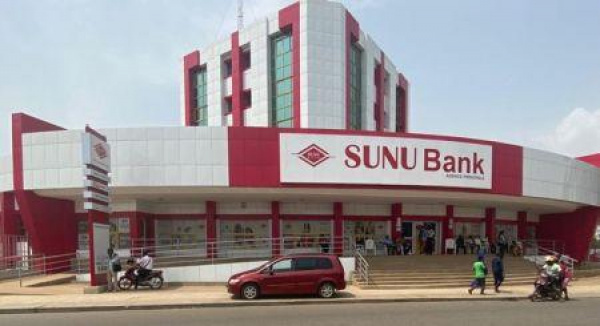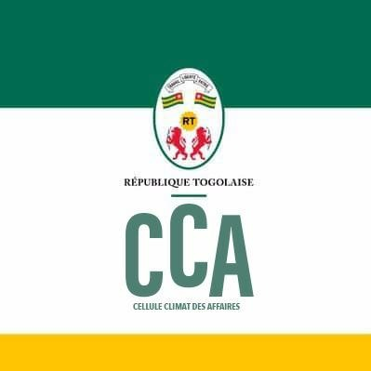SUNU Bank Togo: Branch Closures and Layoffs Planned to Tackle Financial Issues

(Togo First) - SUNU Bank Togo, a subsidiary of the SUNU Group, is implementing a drastic restructuring plan to address ongoing financial difficulties. The plan includes branch closures, job cuts, and a tightly controlled recapitalization effort. These unfold amidst social tension and uncertainty.
When SUNU Group acquired Banque Populaire pour l'Épargne et du Crédit (BPEC) in 2017, the goal was to establish a foothold in the banking sector, building on its established reputation in insurance. However, eight years later, the Togolese subsidiary, the first banking establishment of the Group, is struggling and undergoing restructuring.
On February 3, 2025, the bank's management sent a letter to union representatives and the labor inspectorate outlining a reorganization plan. The plan includes closing seven unprofitable branches and cash points, cutting jobs, merging some activities, and redistributing staff.
The Union of employees and managers of banks, financial institutions, and insurance companies of Togo (Synbank), the employees union, rejected the bank's justifications. According to them, SUNU Bank Togo's financial problems stem from poor management, not excessive operating costs.
Fundamentals Scrutinized
However, the lender attributed its decisions to an urgent need to streamline costs and improve profitability. The cost/income ratio, a key indicator of banking performance, exceeded 90% between 2018 and 2023. Thus, for every franc earned, operating costs gulped 90 cents, well above industry standards of 50%-60%.
Between 2021 and 2022, the bank's situation worsened. In 2022, SUNU Bank Togo's fixed costs represented 96% of net banking income (NBI), compared to 98% in 2021. The bank indicated in a report that personnel costs further deteriorated SUNU Bank Togo's profitability between 2021 and 2022. In 2023, its cost/income ratio deteriorated further to 110%.
The bank believes its current level of expenses is incompatible with medium-term profitability. Key cost drivers include payroll and compensation practices deemed non-compliant, such as inadequate promotion systems, high vacation pay and cash bonuses, and overly generous internal credit terms for employees.
Accordion Effect
Another factor precipitating the restructuring was the revision of regulatory requirements. In December 2023, the UEMOA Banking Commission raised the minimum share capital for banks from 10 to CFA20 billion, forcing several institutions to strengthen their capital base[8].
SUNU Bank responded by launching a capital increase of CFA11.16 billion in December 2024. The operation, offering 2.48 million new shares at a unit price of CFA4,500, aimed to comply with new regulatory requirements and strengthen the bank's capital base.
The demons that SUNU Bank Togo deals with are not new. Since acquiring a stake in 2017, SUNU Investment Holding has made numerous balance sheet adjustments to stabilize the bank. An initial injection of CFA14.3 billion raised the share capital to CFA20.8 billion, completing BPEC's privatization.
However, in 2019, the group reversed course by reducing the capital by CFA11.4 billion, before increasing it again by just CFA1.8 billion, setting the capital at CFA11.16 billion. This decision was motivated by the need to absorb accumulated losses and restructure the financial base. The move reduced pressure on return on equity and strengthened the SUNU Group's control over the bank, increasing its shareholding from 65.7% to 71.64%.
SUNU Investment Holding intended to retain its majority control (71.64%) when the operation was launched in December 2024 and structured the offer to limit the entry of new independent investors.
More than a month after the close of subscription to the new capital increase, the bank has not disclosed the results.
Five years after the "coup d'accordéon," the establishment is still struggling to break even. On December 31, 2023, it posted a net loss of -CFA1.1 billion (down 319%), wiping out much of the profit made in recent years. Its solvency ratio, at 12.38%, remains slightly above the regulatory threshold of 11.5%.
Impasse
While management underscores restructuring to ensure the institution's long-term viability, Synbank views this as a smokescreen. The union and staff representatives firmly oppose the redundancy plan.
Discussions have been stalled for several months. On October 8, 2024, the Chairman of the Board of Directors met with union representatives for initial discussions. On January 10, 2025, senior management convened a further meeting, following the expiry of the statutory deadline stipulated in the collective agreement.
However, these negotiations failed to reach a consensus. The union is demanding an independent audit of the bank's accounts and the assent of the WAEMU Banking Commission before any negotiation. It is also rejecting the certified financial statements sent by management, arguing that they do not provide a complete picture of the difficulties raised.
In this context, management maintains that the restructuring process is "irreversible".
This article was initially published in French by Fiacre E. Kakpo
Edited in English by Ola Schad Akinocho

















